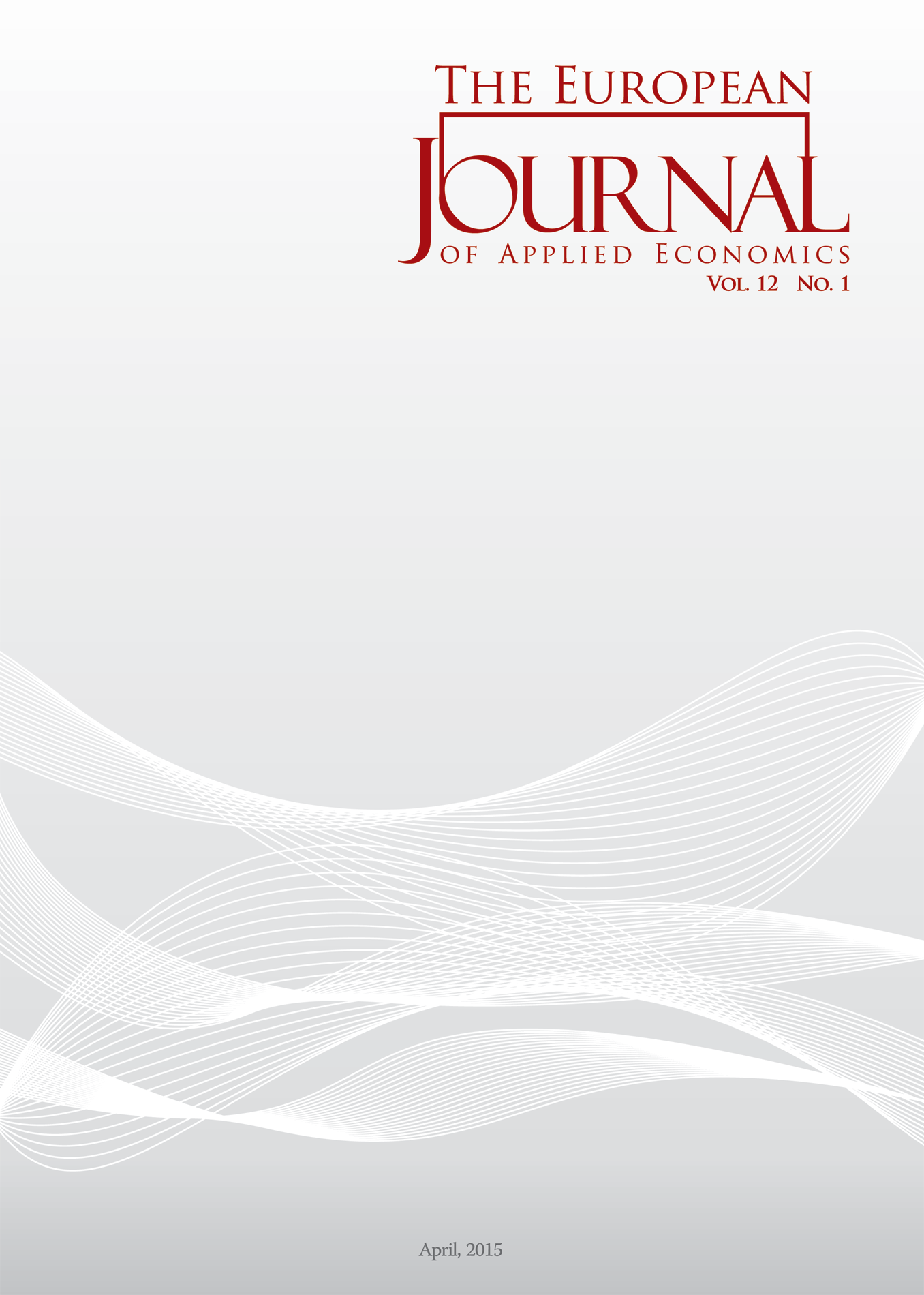The impact of economic crisis and non-economic factors on the tourism industry in Zlatibor
Abstract
Tourism has recorded a favorable development trend in the previous decades. Despite the fact that it was occassionaly exposed to adverse effects of the crises caused by numerous economic and non-economic factors, tourism has managed to recover significantly faster and record a higher growth rate compared to the entire world economy. This paper analyses the effects of the economic crisis and other non-economic factors on tourist movements in Serbia during the period 2007-2014, with special emphasis on Zlatibor as a popular tourism destination. The aim of this paper is to show that the aforementioned crisis had a major impact on the movements of domestic and foreign tourists in Serbia and Zlatibor during the analyzed period. Based on the available data, research was conducted and the results showed that the economic factors primarily led to the reduction in the number of tourists in Serbia, while the economic crisis had more impact on domestic travel than on the movements of foreign tourists in our country.
References
Barać, S., & Stakić, B. (2007). Osnovi ekonomije. Beograd: Univerzitet Singidunum. (In Serbian).
Boin, A., Mcconnell, A., & Hart, P. (2008). Governing after Crisis: The politics of Investigation, Accountability and Learning. Cambridge: Cambridge University Press.
Bošković, N., & Milenković, S. (2012). Razvojne tendencije ekoturizma Srbije. Teme: Časopis za drušvenu teoriju i praksu, 2, 483-499.
Cohen, E. (2012). Globalization, Global Crises and Tourism. Tourism Recreation Research, 37(2), 103-111. doi:10.1080/02508281.2012.11081695
Coyle, D. (2014). GDP: A Brief but Affectionate History. Princeton: Princeton University Press.
Dehoorne, O., Depault, K., Ma, S.Q., & Cao, H.H. (2014). International Tourism: Geopolitical Dimensions of a Global Phenomenon. In B.Y. Cao (Ed.), Ecosystem Assessment and Fuzzy Systems Management. (pp. 389-396). Springer International Publishing. doi:10.1007/978-3-319-03449-2_35.
Eugenio-Martin, J.L., & Campos-Soria, J.A. (2014). Economic crisis and tourism expenditure cutback decision. Annals of Tourism Research, 44, 53-73. doi:10.1016/j.annals.2013.08.013
Fern-Benks, K. (2011). Crisis communications: A casebook approach. New York: Taylor & Francis.
García-Cabrera, A.M., & Durán-Herrera, J.J. (2014). Does the tourism industry co-evolve. Annals of Tourism Research, 47, 81-83. doi:10.1016/j.annals.2014.05.004
Ghaderi, Z., Som, A.P.M., & Wang, J. (2014). Organizational Learning in Tourism Crisis Management: An Experience From Malaysia. Journal of Travel & Tourism Marketing, 31(5), 627-648. doi:10.1080/10548408.2014.883951
Gul, K., Asik, N.A., & Gurbuz, A.K. (2014). The Effect of Global Economic Crisis on Turkish Tourism Demand and a Review for the Period 2003-2013. Journal of World Economic Research, 3(6-1), 22-32. doi:10.11648/j.jwer.s.2014030601.14.
Hanfling, D., Altevogt, B.M., & Gostin, L.O. (2012). A framework for catastrophic disaster response. JAMA, 308(7), 675-6. pmid:22893162. doi:10.1001/jama.2012.8171
Henderson, J. (2007). Tourism crisis: Causes, consequences and management. Oxford: Elsevier.
Hill, M. (2014). Reflections on the politics of the economic crisis from a policy process perspective. Anali Hrvatskog politološkog društva, 10(1), 41-56.
Jaques, T. (2010). Reshaping crisis management: The challenge for organizational design. Organization Development Journal, 28(1), 9-17.
Jovanović, V., & Vukasović, S. (2014). Adapting the TSA to measure economic contribution of tourism in Serbia. Singidunum Journal of Applied Sciences, 11(2), 1-10. doi:10.5937/sjas11-4463
Kubiszewski, I., Costanza, R., Franco, C., Lawn, P., Talberth, J., Jackson, T., & Aylmer, C. (2013).Beyond GDP: Measuring and achieving global genuine progress. Ecological Economics, 93, 57-68. doi:10.1016/j.ecolecon.2013.04.019
Najdić, M., & Sekulović, N. (2012). Behavior of Serbian Tourists during Economic Crisis: Two Empirical Researches.Turizam, 16(4), 180-192.
Paraskevas, A., & Altinay, L. (2013). Signal detection as the first line of defence in tourism crisis management.Tourism Management, 34, 158-171. doi:10.1016/j.tourman.2012.04.007
Paraskevas, A., Altinay, L., McLean, J., & Cooper, C. (2013). Crisis knowledge in tourism: Types, flows and governance. Annals of Tourism Research, 41, 130-152. doi:10.1016/j.annals.2012.12.005
Paunović, I. (2013). Proposal for Serbian tourism destinations marketing campaign. Singidunum Journal of Applied Sciences, 10(2), 40-52. doi:10.5937/sjas10-4327
Paunović, S., & Pešić-Andrijić, M. (2014). Ekonometrijski model lične potrošnje. Zbornik radova Ekonomskog fakulteta u Istočnom Sarajevu, 8, 99-105. doi:10.7251/ZREFIS1408247P (In Serbian).
Pearson, C.M., & Clair, J.A. (1998). Reframing Crisis Management. Academy of Management Review, 23(1), 59-76. doi:10.5465/amr.1998.192960
Popesku, J. (2011). Menadžment turističke destinacije. Beograd: Univerzitet Singidunum. (In Serbian).
Ritchie, B.W., Crotts, J.C., Zehrer, A., & Volsky, G.T. (2013). Understanding the Effects of a Tourism Crisis: The Impact of the BP Oil Spill on Regional Lodging Demand. Journal of Travel Research, 53(1), 12-25. doi:10.1177/0047287513482775
Sekulović, N. (2011). The Impact of the Global Economic Crisis on the Attitudes of the Citizens of Serbia towards Leisure Travel. Singidunum revija, 8(2), 111-118.
Simić, V. (2011). Uticaj ekonomske krize na socijalnu politiku srbije u periodu 2008-2011. Godišnjak, 06, 507-520.(In Serbian).
Stiglitz, J., Sen, A., & Fitoussi, J.P. (2009). The measurement of economic performance and social progress revisited: Reflections and overview. Paris: Commission on the Measurement of Economic Performance and Social Progress.
Statistical Office of the Republic of Serbia. (2015). Tourism. Retrieved from http://webrzs.stat.gov.rs/WebSite/Public/PageView.aspx?pKey=180
Unković, S., & Sekulović, N. (2010). Mere za ublažavanje negativnog dejstva svetske ekonomske krize na turizam. Singidunum revija, 7(2), 181-192. (In Serbian).
Unković, S., & Zečević, B. (2014). Ekonomika turizma. Beograd: Ekonomski fakultet. (In Serbian).
UNWTO. (2015). World Tourism Barometer and Statistical Annex. Retrieved from http://www.eunwto.org/content/l407r60414k52204/fulltext?p=2e4f3e5750404d39ab05e15641ce8756&pi=0#section=1190844&page=2&locus=0
Veselinović, P. (2012). Izazovi ekonomske nauke u uslovima globalne ekonomske krize. Ekonomske teme, 4, 433-450. (In Serbian).
Veselinović, P., & Makojević, N. (2012). Komparativna analiza makroekonomskih pokazatelja Srbije, Bugarske i Rumunije u procesu tranzicije. In Institucionalne promene kao determinanta privrednog razvoja Srbije. (pp. 135-155). Kragujevac: Ekonomski fakultet.
Zhong, Y.Y., & Hara, T. (2014). Quantifying the Impacts of the Recent Economic Crisis on a Regional Tourism Industry and Economy. Hospitality Review, 31(1), 10.
Šušić, V., & Mojić, J. (2014). Kongresni turizam kao tržišna niša poslovnog turizma. Ekonomske teme, 4, 523-539. (In Serbian).
Šuljagić, S. (2010). Doprinos turizma razvoju regiona Zlatibor. Politička revija, 9(1), 249-271. (In Serbian).


